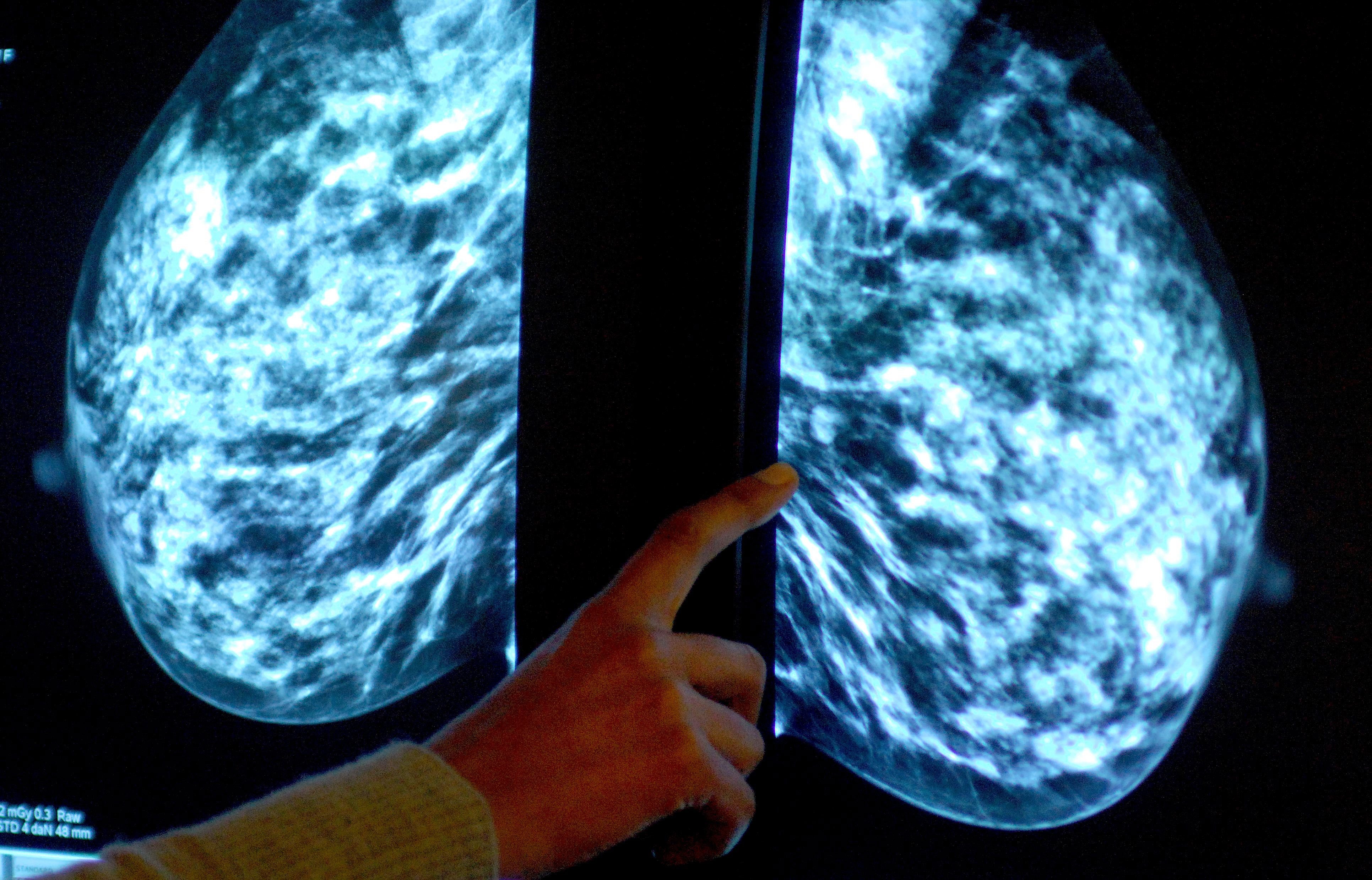Some breast cancer patients can ‘avoid radiotherapy’ – study
Women with a certain type of breast cancer could forgo the treatment altogether and instead have hormone therapy.

Your support helps us to tell the story
From reproductive rights to climate change to Big Tech, The Independent is on the ground when the story is developing. Whether it's investigating the financials of Elon Musk's pro-Trump PAC or producing our latest documentary, 'The A Word', which shines a light on the American women fighting for reproductive rights, we know how important it is to parse out the facts from the messaging.
At such a critical moment in US history, we need reporters on the ground. Your donation allows us to keep sending journalists to speak to both sides of the story.
The Independent is trusted by Americans across the entire political spectrum. And unlike many other quality news outlets, we choose not to lock Americans out of our reporting and analysis with paywalls. We believe quality journalism should be available to everyone, paid for by those who can afford it.
Your support makes all the difference.Some breast cancer patients may not need to go through radiotherapy, a new study suggests.
Women over the age of 55 who have a certain type of cancer which is caught early can instead have surgery and hormone therapy, researchers found.
Lead author Professor Timothy Whelan, from McMaster University in Canada, said the finding is “exciting” and shows that some women can safely avoid the associated side-effects linked to radiotherapy.
The research, which has been presented at the American Society of Clinical Oncology’s (Asco) annual meeting in Chicago in the US, examined outcomes in women who had low-grade luminal A-type breast cancer – a cancer with a specific genetic marker.
If we can avoid radiotherapy, so much the better. Not all cancers require the same level of often-invasive treatment
A group of 500 patients had surgery to remove their breast cancer, followed by hormone therapy.
They were then tracked for five years to assess their risk of cancer coming back.
The researchers found that the recurrence of cancer in the breast was just 2.3% without radiotherapy.
This was roughly comparable with a 1.9% chance of cancer occurring in the opposite, untreated, breast.
Prof Whelan said patients with early stage breast cancer typically undergo radiotherapy courses of three to five weeks to reduce the risk of the disease recurring.
He added: “These findings are exciting because we have identified a certain group of patients who can avoid radiotherapy and its associated side-effects and potentially change for the better medical practice around the treatment of breast cancer.
“Radiotherapy has significant early side-effects, including fatigue and skin irritation that can last for several weeks after the course is completed, and late side-effects such as breast shrinkage and distortion that can affect quality of life, and very rarely more serious complications such as heart disease and second cancers.
“If we can avoid radiotherapy, so much the better.
“Not all cancers require the same level of often-invasive treatment.
“There is a very low-risk group of breast cancers displaying the luminal A biomarker and they are not particularly aggressive.”
This exciting data is very reassuring and could impact a large number of patients with cancer who have very low chances of their breast cancer returning even without radiation therapy
Commenting on the study, Dr Kotryna Temcinaite, senior research communications manager at the charity Breast Cancer Now, said: “With around 55,000 women and 370 men receiving a breast cancer diagnosis each year in the UK, we need to make sure that everyone receives the treatment most suitable for them – from people who are more likely to see the disease return requiring more intensive treatment, to those who could safely skip certain treatments and their associated side-effects.
“These exciting findings suggest that, with the help of an additional test, patients with a type of low-grade breast cancer may be successfully treated with surgery and hormone (endocrine) therapy, meaning they could avoid undergoing radiotherapy and enduring its gruelling side-effects.
“By expanding our understanding of when certain treatments may not be necessary, research like this could transform how breast cancer is treated in the future.”
Dr Corey Wayne Speers, Asco’s expert in radiation oncology, said: “This exciting data is very reassuring and could impact a large number of patients with cancer who have very low chances of their breast cancer returning even without radiation therapy.”